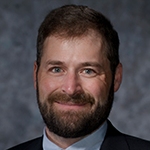The Evidence is in: Private Schools Make Good Citizens
As the 2024 Presidential election approaches, there is rightly a renewed focus on the United States’ civics education crisis. On the most recent Nation’s Report Card, civics scores dropped for the first time ever, with fewer than one in four students scoring proficient. Voter participation remains low, especially for young people. There are real concerns about our ability to maintain a thriving democracy.
How can we address this problem? Our research team, which included Alison Heape Johnson, Mattie Harris, and Sarah Morris, found evidence that private school choice can be part of the solution. According to our new peer-reviewed study, just published in Educational Psychology Review, private schools outperform public schools in forming citizens, particularly in promoting political tolerance, political knowledge and skills, and voluntarism and social capital. Religious schooling especially produces positive civic outcomes. In other words, increasing private school choice may help, not hinder, democracy.
To conduct this research, we completed what is called a meta-analysis. We collected all the empirical studies of the effects of private schools around the world— 57 studies in total— on various civic outcomes, and used the latest and most rigorous statistical techniques to combine those studies into one finding. The oldest data in the study were drawn from 1982, and the most recent data were from 2020; more than a dozen countries were represented.
By simply classifying each finding, a rudimentary procedure called “vote counting,” we discovered that statistically significant findings of a private schooling civics advantage outnumbered those of a public schooling advantage by nearly 4 to 1. Combining all the statistical results, we found that, on average, private schooling boosts any civic outcome by 5.5% of a standard deviation, or roughly two percentile points, over public schooling. To put it another way, this is a modestly-sized positive effect compared to other education policies and interventions.
Notably, religious schooling seems to play a particularly positive role in shaping civic outcomes, with a boost of 7.6% of a standard deviation. Even for the outcome of political tolerance, arguably the toughest test for religious schooling effects on civics, we found that there is, at worst, no effect relative to public schools.
These findings surprised us. The conventional wisdom—often promoted by opponents of school choice—is that public schools are better positioned to develop citizens. After all, most countries established their public school system specifically to prepare children for their citizenship duties; the consistent curriculum and standardized practices are better positioned to produce civic outcomes.
But as our results show that it’s not so simple. Defenders of private schools argue that public schools tend to be products of the democratic political system but not necessarily pillars of it. They argue public schools largely serve the interests of powerful elites and can be intolerant of certain political, ideological, and religious values. Many private schools, in contrast, encourage students to confront controversial, value-laden issues, which are often avoided in public schools so as not to ruffle feathers. These factors could help explain the positive civics outcomes we observe for private schools.
Across the country families are demanding educational options outside of the public school system. EdChoice’s polling shows that only a quarter of adults in the U.S. think that K-12 education is “on the right track.” According to polling from the yes. every kid. foundation, nearly 70 percent of Americans believe that making K-12 education more flexible would improve the overall education system. In 2023, elected officials responded, with seven states passing universal choice legislation to give families options to use public funds to pick a school that best fits their child—and thousands of families are now exercising that option for the first time by enrolling their child in a private school.
It may be tempting to point to growing interest in private schools as a contributing factor to the civics crisis. But the data do not support the concerns of harmful civic effects from private schooling, either paid for by parents or accessed through the increasing number of school choice programs sweeping the country. Based on the empirical evidence, private schooling does not threaten democracy. Educational pluralism seems to be a boon, and not a bane, for civic outcomes.





